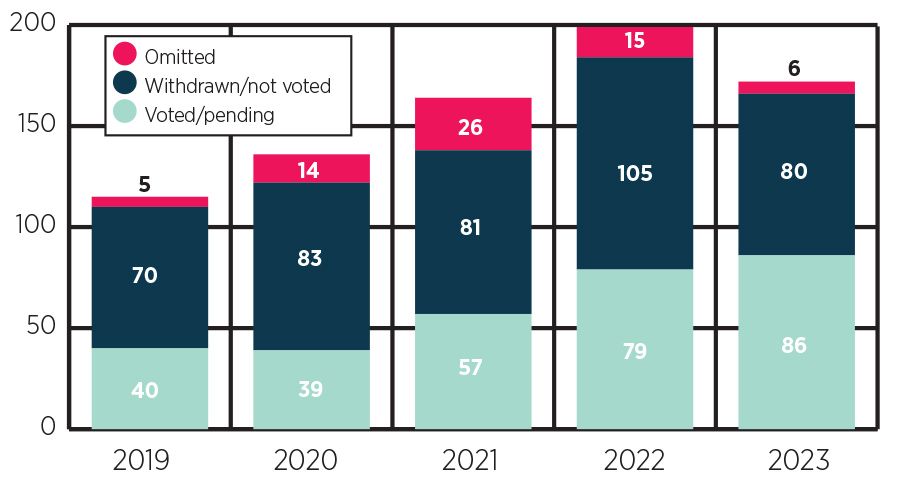Companies’ public disengagement from Pride Month isn’t a pullback from their commitment to social causes, according to ESG experts. However, some cautious investment managers might vote down shareholder proposals focused on diversity, equity and inclusion.
Big brands pause on Pride
Household names like Target Corporation and the United States Navy have pulled support for Pride Month this year amid a consumer backlash and ratings downgrades, fuelling claims of “rainbow capitalism”.
Target Corporation pulled some of its LGBTQ+ products back in May, citing “confrontational behavior” and threats to staff safety. Since the furore kicked off, the retail giant’s share price has slumped by almost a fifth despite a US stock market rally.
Meanwhile, just two days into Pride Month the United States Navy pulled the rainbow banner on its social media accounts and deleted its Pride posts. These triggered accusations of “rainbow capitalism”, where corporations capitalize off Pride only when it suits them.
Some experts, however, said it’s merely a withdrawal in overt support to deflect vitriol towards their employees, but that they are still committed to the ‘S’ in ESG. Indeed, the United States Navy’s secretary put out a press release in support of its LGBTQI+ sailors on June 8.
Paul Arnold, co-head of asset allocation strategies and portfolio manager of ESG asset allocation portfolio series at Morningstar Investment Management, and ESG Clarity US Committee member, is sanguine. He explained companies are still open to integrating LGBTQI+-friendly policies but prefer to do it more quietly, to avoid a backlash.
Leslie Samuelrich, president of Boston-based Green Century Capital Management, added: “It’s a pause moment where companies are trying to assess where they’re going to land. They moved towards being more environmentally and socially open, because that’s where their customer base has moved and they see a market there. For the first time, they’re getting this organized backlash.”
The real problem, said Arnold, is how companies manage the polarization gripping America. He said: “Anybody can sort of pick a fight with any company. So how are these companies going to deal with both sides when you’ve got a large majority of your clients that feel so strongly about [something]?”
Large investment managers might pull support
Even if companies are still committed to fulfilling their commitments to social causes, some of their investors might feel differently if the backlash hurts profits.
Larger investment managers are under fire for putting investor returns above their commitments to sustainable investing, or vice versa. Larry Fink was urged to step down as CEO of BlackRock by activist investor Bluebell Capital Partners, which branded the investment manager’s ESG strategy as inconsistent and said it “had alienated clients and attracted an undesired level of negative publicity”.
The Sustainable Investments Institute (Si2) pulled together the last five years’ worth of US company shareholder proposals that relate to human capital management (HCM), such as diversity, decent work, sick leave, labor rights, plus those related to board oversight of these issues.
US shareholder proposals with HCM themes, number of proposals filed

So far, there does not appear to be a huge climbdown in shareholder proposals but it’s too early to tell. Sustainability experts are keeping an eye out for a data dump in August. The big mutual funds will submit their N-PX forms to the US Securities and Exchange Commission by the end of the month, which will reveal their proxy voting record for the year up to June 30.
Heidi Welsh, the founding executive director of Si2, explained: “We won’t have good evidence on how the big mutual funds voted until they release their forms in August, but the big drops can only come from the largest players generally pulling back.
“That said, one also has to look at a lot of other things. In particular, there are fewer shareholder proposals on diversity, equity and inclusion since companies have already agreed to more disclosure, which means they’ve already done what has been asked.
“In addition, votes are just one metric—arguably more important is how many have been withdrawn for agreements; we don’t have all that information available yet because it’s not generally public and depends on talking to the proponents. That takes time.”








